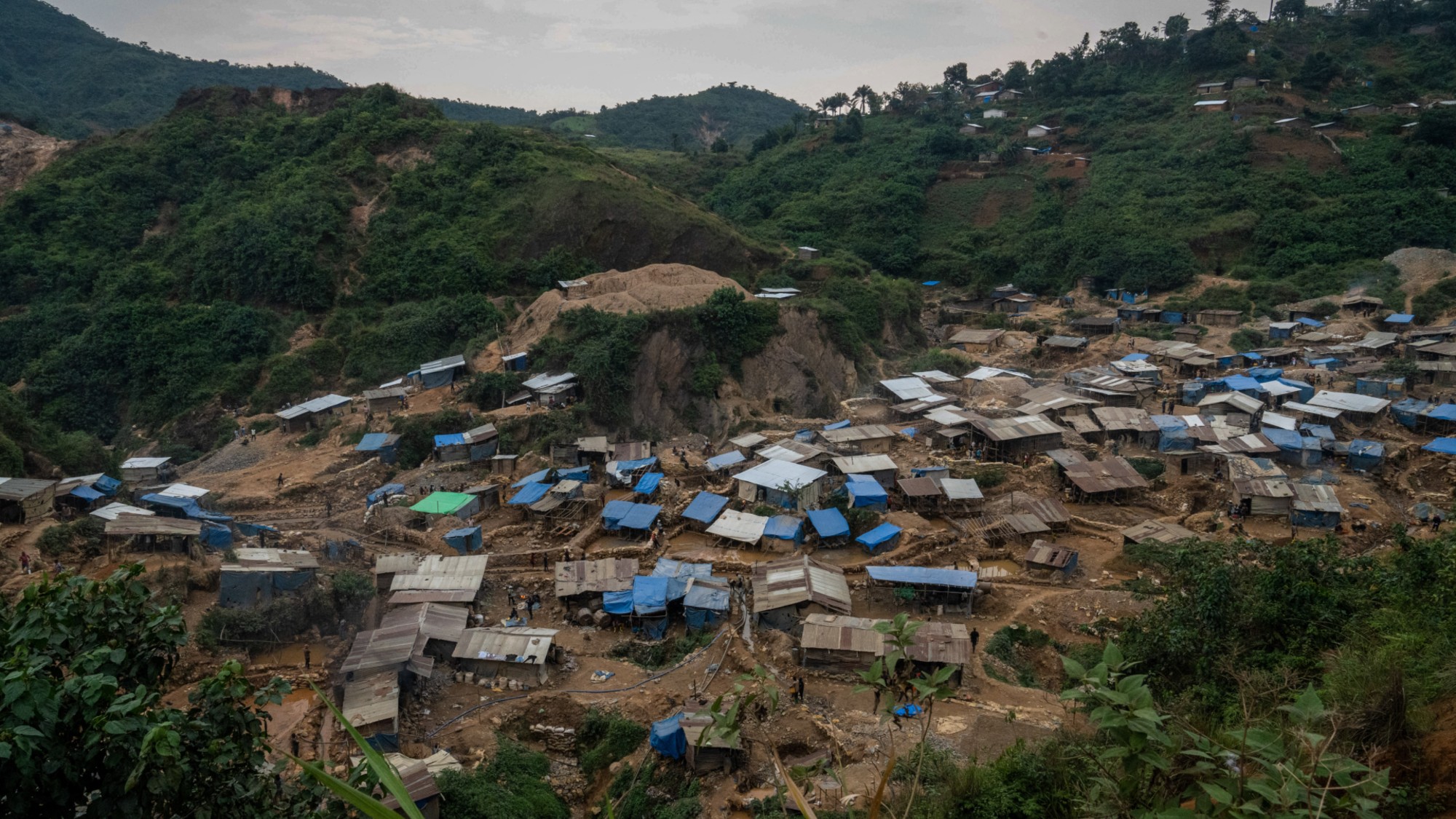Blood minerals in DR Congo
Battle for control of central African nation fuelled by increasing demand for minerals crucial in manufacture of smartphones and laptops

A free daily email with the biggest news stories of the day – and the best features from TheWeek.com
You are now subscribed
Your newsletter sign-up was successful
"The source of misery for the people of the eastern Democratic Republic of Congo lies in the vast natural treasures beneath their feet," said The Times.
The region boasts a "dizzying array" of riches, such as gold and diamonds, but the "most coveted are the lesser known": coltan, cobalt and other minerals "crucial in the production of laptops and smartphones".
It is "no coincidence" that violence has increased alongside consumer demand for tech. But while the slogan "blood diamonds" helped to ease conflicts elsewhere in Africa, a "similarly murderous hunt for smart-tech minerals" has only intensified in the DRC, displacing seven million and "condemning a region to perpetual chaos".
The Week
Escape your echo chamber. Get the facts behind the news, plus analysis from multiple perspectives.

Sign up for The Week's Free Newsletters
From our morning news briefing to a weekly Good News Newsletter, get the best of The Week delivered directly to your inbox.
From our morning news briefing to a weekly Good News Newsletter, get the best of The Week delivered directly to your inbox.
'Horror show'
The DRC is the world's largest producer of coltan, said Ecofin Agency, from which tantalum – indispensable for manufacturing phones and laptops – is extracted. Nearly 70% of the world's tantalum comes from DRC and neighbouring Rwanda, according to the US Geological Survey. So the challenge, said The Times, is to ascertain how much of that tantalum comes from Rwanda, and how much from "conflict-ridden mining" in the DRC.
Tin and tungsten are also abundant in the volatile eastern borderlands. Tin is used to solder metal components, and tungsten in the parts that make phones vibrate, said CNBC. The metals, along with coltan, are considered conflict minerals because of their potential origin in the war-torn region. Mining them can "help fund armed conflict".
Coltan mining in the DRC has also been linked to "large-scale environmental degradation, human rights abuses, violence and death", said Oluwole Ojewale, from the Institute for Security Studies, on The Conversation. It is "destroying ecosystems", polluting water supplies and producing harmful "radioactive substances".
Much of the coltan is mined by children, in hazardous conditions. Coltan extracted by child labour is "uncertified and untraceable", funnelled into the supply chain through "smuggling, counterfeiting and collusion".
A free daily email with the biggest news stories of the day – and the best features from TheWeek.com
The M23 rebel group has recently captured Rubaya, a town "at the heart" of coltan mining, said Andalou. M23 is "trying to defend itself from accusations of mineral exploitation". A spokesperson said the group seized Rubaya "to chase away our enemy, not for its wealth". But the DRC has long accused Rwanda of using M23 as a proxy to seize control of its mineral supplies, which the Rwandan government denies.
The DRC is also "by far the world's largest producer of cobalt", said Investing News Network, accounting for nearly three-quarters of production. Cobalt is an essential component of the lithium-ion batteries in electric vehicles, so demand is rocketing. It is not considered a conflict mineral, as much of it is mined in the relatively stable south, but the industry is still associated with "rampant human-rights abuses", environmental devastation and child labour, largely due to unregulated so-called "artisinal mining".
"The bottom of the supply chain, where almost all the world's cobalt is coming from, is a horror show," one expert at Harvard's T.H. Chan School of Public Health told NPR.
'There are no guarantees'
Amid growing global scrutiny, African countries, intergovernmental organisations and tech companies have "ramped up their efforts to clean up mineral supply chains", said CNBC. Apple, Microsoft and Tesla publish reports every year, usually saying there is "no reason to believe the minerals they source help to support armed groups".
But in December, the DRC government filed lawsuits in Paris and Brussels against Apple's European subsidiaries, accusing the tech giant of buying "blood minerals" illegally mined in its conflict zones, and using them in the latest iPhone 16.
International lawyers wrote to Apple CEO Tim Cook, saying the alleged illicit procurement of minerals had inflicted "unfathomable harm and suffering" on the DRC's people, fuelling violence by financing armed groups, encouraging forced child labour and environmental devastation.
Apple denies using minerals from conflict regions, saying it uses responsibly sourced minerals and verifies their origin. "As conflict in the region escalated earlier this year [2024] we notified our suppliers that their smelters and refiners must suspend sourcing tin, tantalum, tungsten, and gold from the DRC and Rwanda," it said in response to the lawsuits.
But it is impossible for consumers to be sure that their electronics are fully conflict- and cruelty-free, said CNBC. Endemic corruption and instability in the region mean "there are no guarantees".
Harriet Marsden is a senior staff writer and podcast panellist for The Week, covering world news and writing the weekly Global Digest newsletter. Before joining the site in 2023, she was a freelance journalist for seven years, working for The Guardian, The Times and The Independent among others, and regularly appearing on radio shows. In 2021, she was awarded the “journalist-at-large” fellowship by the Local Trust charity, and spent a year travelling independently to some of England’s most deprived areas to write about community activism. She has a master’s in international journalism from City University, and has also worked in Bolivia, Colombia and Spain.